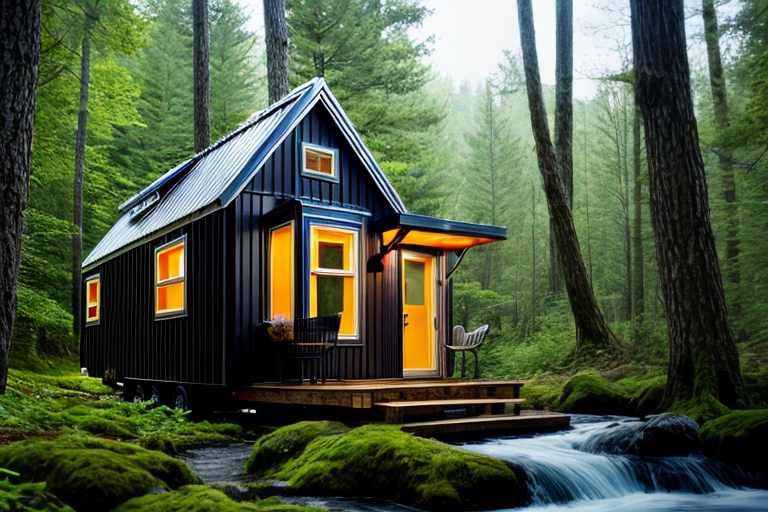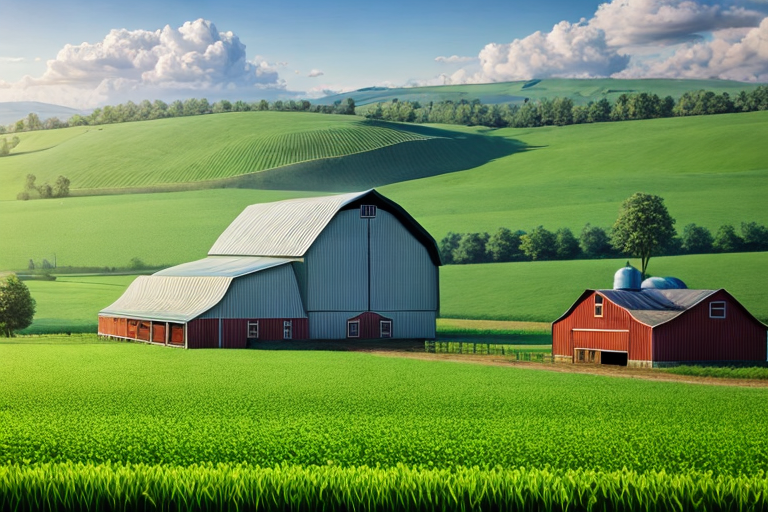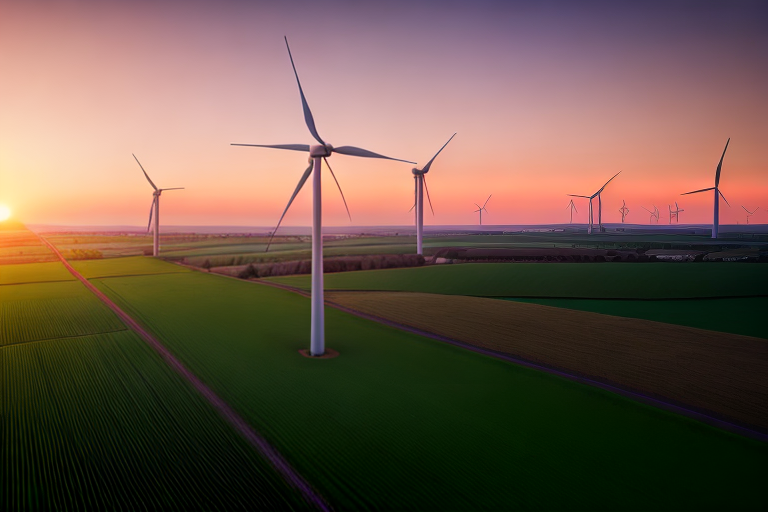
Off-grid living is a way of life that promotes independence and sustainability. It is about living without depending on public utilities like electricity, water, and sewage systems.
Instead, individual’s or communities generate their own power, collect rainwater, and manage waste through eco-friendly methods.
To successfully achieve self-sufficiency in off-grid living, one must acquire a range of skills and knowledge.
Sustainable food production is a key component of this lifestyle. individual’s can grow various crops, raise livestock, or practice aquaponics.
It is important to understand organic farming practices, crop rotation, and permaculture principles to ensure long-term food security.
In addition, off-grid living often involves utilizing alternative energy sources, such as solar panels, wind turbines, or hydroelectric power.
These methods provide individual’s with reliable and sustainable energy solutions.
Overall, off-grid living offers a way for individual’s and communities to rely on themselves and minimize their impact on the environment through self-sufficiency and sustainable practices.
Click here to learn more Survival Tips from Pro Outdoor Survival
Benefits of Off grid Living and Self Sufficiency Skills
Living a sustainable lifestyle and developing self-sufficiency skills go hand in hand, offering numerous advantages that can significantly enhance one’s quality of life. By disconnecting from traditional power and utility systems, individual’s can experience a sense of freedom and independence that is unparalleled.
One of the main benefits of this lifestyle is the ability to reduce or even eliminate monthly utility bills.
Generating your own electricity through solar panels or wind turbines allows you to become less reliant on external sources and save money in the long run.
Embracing sustainable practices in this lifestyle encourages individual’s to be mindful of their energy consumption and utilize renewable resources. Acquiring the knowledge and abilities to grow your own food, raise livestock, and harvest rainwater is crucial for self-sufficiency, reducing dependence on external sources for basic needs. This level of independence not only provides security but also allows individual’s to live a more self-sufficient and sustainable off-grid lifestyle.

Achieving Self Reliance Through Off grid Living
In addition to the practical advantages, embracing self-sufficiency skills brings a distinct sense of liberation and a profound bond with the environment. Living off the grid allows individual’s to fully embrace the serenity and loveliness of the natural world, away from the fast-paced urban lifestyle.
Waking up to the delightful melody of singing birds or relishing an unblemished view of the starry night sky creates a peaceful and tranquil setting.
This connection with nature not only improves overall wellness but also reminds us of the significance of conserving the planet for future generations.
At our business/brand, we believe in achieving self-reliance through off-grid living, as it allows us to experience the beauty and harmony of nature firsthand.
Benefits of Embracing Self-Sufficiency Skills
- Living off the grid allows individual’s to disconnect from the fast-paced urban lifestyle and experience the serenity and loveliness of the natural world.
- Being self-sufficient promotes a sense of liberation and freedom, as individual’s rely less on external systems and resources.
- Waking up to the delightful melody of singing birds and enjoying an unblemished view of the starry night sky creates a peaceful and tranquil setting.
- Embracing self-sufficiency skills fosters a deeper connection with nature, leading to improved overall wellness and a greater appreciation for the importance of conserving the planet for future generations.
Sustainable Skills for Off grid Living
We will explore some essential skills for sustainable living in a self-sufficient manner. These skills include harnessing renewable energy sources such as solar power, wind power, and hydro power.
We will also discuss alternative energy sources, off-grid electricity, heating, cooling, and plumbing.
By understanding and utilizing these renewable energy sources, individual’s can create a sustainable living environment.
It is crucial to conserve and efficiently use water resources, which can be achieved through techniques like rainwater harvesting and greywater recycling. Another important aspect of self-sufficiency is growing your own food.
Learning organic gardening techniques and implementing permaculture principles can ensure a sustainable food source while minimizing waste. Lastly, we will discuss food preservation techniques to further enhance self-sufficiency skills.
Exploring Alternative Energy Sources
Construction materials and techniques have evolved to support the creation of energy-efficient and environmentally friendly buildings. Off-grid construction is an emerging trend that incorporates features such as solar panels, rainwater harvesting systems, and passive heating and cooling methods.
By implementing these technologies, individual’s can reduce their reliance on traditional power grids and minimize their carbon footprint.
Alongside these advancements, self-sufficiency skills play a vital role in off-grid living.
Cultivating one’s own food, preserving it, and acquiring basic survival skills help individual’s become more independent and less reliant on external resources. Sustainable living also involves reducing resource consumption, recycling materials, and minimizing waste.
By embracing sustainable practices, we can make a positive impact on the environment and create a more sustainable future.
Off-Grid Construction and Sustainable Living
- Off-grid construction incorporates solar panels, which can significantly reduce reliance on traditional power grids. According to the International Energy Agency, solar power has the potential to provide up to 16% of the world’s electricity by
- Rainwater harvesting systems in off-grid buildings help conserve water resources. The United Nations estimates that by 2025, two-thirds of the world’s population could be facing water shortages, making rainwater harvesting a crucial practice.
- Passive heating and cooling methods, such as proper insulation and natural ventilation, can reduce energy consumption in buildings. The U. S. Department of Energy states that these methods can decrease heating and cooling costs by up to 50%.
- Cultivating one’s own food and acquiring basic survival skills contribute to self-sufficiency. The Food and Agriculture Organization of the United Nations highlights that small-scale agriculture can provide diverse, nutritious food while promoting biodiversity and reducing greenhouse gas emissions.
Essential Off grid Gardening Techniques
Predators to control pests without relying on chemical treatments. These methods encourage biodiversity and reduce the need for harmful chemicals in the garden.
By incorporating these essential techniques, individual’s can achieve self-sufficiency and sustainable living through off-grid gardening.
This practice allows individual’s to cultivate their own food, manage water efficiently, maintain soil fertility naturally, and control pests without relying on external resources.
Embracing this lifestyle promotes a more self-reliant and environmentally friendly approach to gardening.
Importance of Off grid Water Purification Methods
Off-grid water purification methods are of utmost importance for individual’s and communities looking to achieve sustainable and environmentally friendly water solutions. These methods rely on renewable sources of water such as rivers, lakes, or rainwater, enabling self-sufficiency and reducing reliance on centralized systems.
By adopting off-grid water purification, individual’s and communities can promote sustainable living and minimize their carbon footprint.
One significant advantage of off-grid water purification is its reliability during emergencies.
When faced with natural disasters or disruptions to the water supply, having the ability to purify water from local sources ensures access to safe drinking water. This is particularly crucial for remote areas or individual’s living off the grid, where access to clean water may be limited.
Off-grid water purification methods play a vital role in ensuring clean and safe drinking water, especially in remote areas or during emergencies. They empower individual’s and communities to take control of their water supply, promoting self-sufficiency, sustainability, and reliability.
Off-Grid Water Purification
- Off-grid water purification methods utilize renewable sources of water such as rivers, lakes, or rainwater, reducing reliance on centralized systems.
- By adopting off-grid water purification, individual’s and communities can achieve self-sufficiency in their water supply.
- Off-grid water purification promotes sustainable living and helps minimize the carbon footprint by reducing the need for transportation and energy-intensive centralized water treatment processes.
- During emergencies or disruptions to the water supply, off-grid water purification ensures access to safe drinking water from local sources, providing a reliable solution.
Off grid Cooking Methods for Self Sufficiency
Ovens, clay ovens, and rocket stoves are other examples of alternative cooking equipment that can be used. These methods and tools enable individual’s to cook meals without relying on modern conveniences, promoting self-sufficiency and sustainable living.
When engaging in off-grid cooking, it is crucial to consider the availability of ingredients and the utilization of local resources.
Foraging for wild edibles, growing vegetables and herbs in a garden, and preserving food through canning or fermentation are all practices that can enhance self-sufficiency in the kitchen.
By relying on what nature provides and being resourceful, individual’s can reduce their dependence on external sources.
Off-grid cooking methods play a vital role in achieving self-sufficiency and sustainable living. By utilizing alternative fuel sources, exploring different cooking equipment, and making use of local resources, individual’s can maintain their independence and reduce their reliance on the grid through off-grid home designs and DIY projects.
Building a self sustaining Community
Living in a van off the grid has become a popular choice for those seeking a self-sustaining community experience. Many individual’s and families opt to convert vans into mobile homes, allowing them to travel while embracing a self-sufficient lifestyle.
This unique form of community living offers the freedom to explore different locations, participate in retreat centers or workshops focused on self-sufficiency skills, and engage in education programs or festivals centered around sustainable living.
Van life off the grid is a thrilling option that combines adventure and sustainability, making it an exciting choice for those interested in building a self-sustaining community.
| Benefits of Living in a Van Off the Grid |
|---|
| Freedom to explore different locations |
| Opportunity to participate in retreat centers or workshops focused on self-sufficiency skills |
| Engagement in education programs or festivals centered around sustainable living |
| Thrilling combination of adventure and sustainability |








